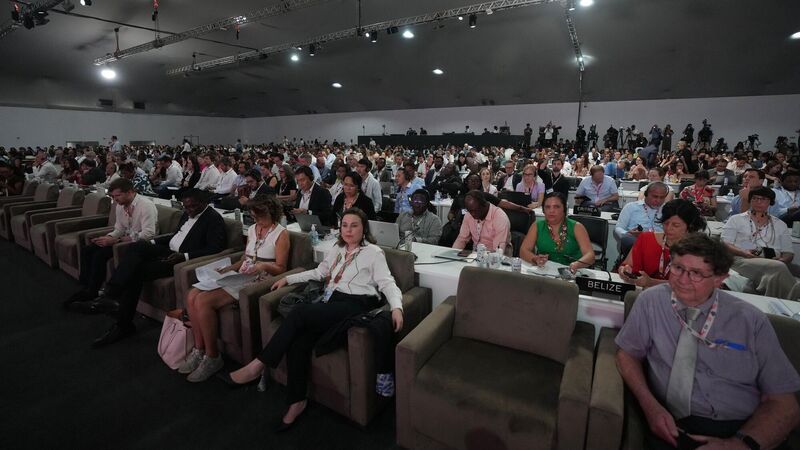Does Cop30 represent a new opening for a fossil fuel phase-out?

A plenary session at the Cop30 UN Climate Summit in Brazil on Saturday. If Brazil wants its Cop30 leadership to have a lasting impact, it must ensure that its new transition fund is more than symbolic. Photo: AP/Fernando Llano
Calls to reduce the use of fossil fuels are becoming impossible to ignore. At the United Nations Climate Change Conference in Brazil (Cop30), major producers are being pressed to begin planning for the phasing down of oil, gas, and coal in a just and orderly way.
For decades, climate negotiations have focused on emissions targets and clean-energy pledges while sidestepping the politically explosive question of whether — and how quickly — countries should phase out fossil-fuel production. Cop28 broke new ground by introducing the phrase “transition away from fossil fuels,” but real progress has remained slow and uneven.
















